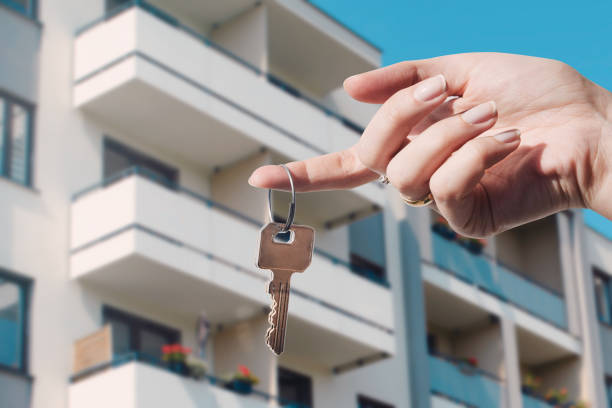The Ultimate Guide to No Deposit Apartments for Rent
Finding a rental apartment without the burden of a deposit can be a game-changer for many tenants. In this comprehensive guide, we will explore the concept of no deposit apartments for rent, the benefits and drawbacks, how to find them, and important considerations for tenants. Whether you are a first-time renter or looking to save on upfront costs, this article will provide you with valuable insights and tips on navigating the world of no deposit rentals.

What are no deposit apartments for rent?
No deposit apartments are rental properties that don’t require tenants to pay a security deposit upfront. Instead of the traditional model where renters provide a lump sum as a security measure, these apartments offer alternative arrangements. Landlords may use different methods to mitigate their risk, such as higher monthly rent, non-refundable move-in fees, or requiring tenants to purchase a security deposit insurance policy.
How do no deposit apartments differ from traditional rentals?
The main difference lies in the financial structure of the lease agreement. Traditional rentals typically require a security deposit equal to one or two months’ rent, which is held by the landlord and returned at the end of the lease, minus any deductions for damages. No deposit apartments eliminate this upfront cost but may have other financial considerations built into the rental agreement to protect the landlord’s interests.
What are the benefits of renting a no deposit apartment?
The primary advantage of no deposit apartments is the reduced upfront cost for tenants. This can be particularly helpful for those who are:
-
On a tight budget
-
Relocating for work or school
-
First-time renters with limited savings
-
Recovering from financial setbacks
Additionally, no deposit apartments can offer more flexibility and quicker move-in processes, as tenants don’t need to wait for a large sum of money to become available.
Are there any drawbacks to no deposit apartments?
While the idea of not paying a security deposit is appealing, there are potential downsides to consider:
-
Higher monthly rent to offset the landlord’s risk
-
Non-refundable fees that may exceed a traditional security deposit over time
-
Stricter credit or income requirements
-
Limited options, as not all landlords offer this arrangement
-
Potential for higher move-out costs if damages occur
How can you find no deposit apartments in your area?
Finding no deposit apartments requires some strategic searching:
-
Use online rental platforms and filter for “no deposit” options
-
Contact local property management companies and inquire about their offerings
-
Work with a real estate agent who specializes in rentals
-
Check social media and community forums for listings
-
Attend local housing fairs or rental expos
In the United States, the availability of no deposit apartments can vary significantly by region. Some cities and states have more options than others, often influenced by local rental market conditions and regulations.
What should you consider before renting a no deposit apartment?
Before committing to a no deposit apartment, carefully evaluate the following:
-
Total cost comparison: Calculate the long-term costs compared to traditional rentals
-
Lease terms and conditions: Understand all fees and financial obligations
-
Move-out policies: Know what charges you might face when leaving
-
Landlord reputation: Research the property management company or individual landlord
-
Property condition: Thoroughly inspect the apartment and document any existing issues
-
Alternative options: Consider security deposit alternatives like surety bonds or installment plans
| Provider | No Deposit Option | Key Features |
|---|---|---|
| Rhino | Security Deposit Insurance | Pay low monthly fee instead of upfront deposit |
| TheGuarantors | Lease Guarantee Program | Cosign service for those who don’t meet rental requirements |
| Jetty | Security Deposit Alternative | One-time, non-refundable fee (17.5% of one month’s rent) |
| LeaseLock | Zero Deposit™ | Built into monthly rent, no separate fee |
Prices, rates, or cost estimates mentioned in this article are based on the latest available information but may change over time. Independent research is advised before making financial decisions.
While no deposit apartments can offer an attractive solution for those looking to minimize upfront rental costs, it’s crucial to carefully weigh the pros and cons. By understanding the alternative financial structures, researching available options, and thoroughly reviewing lease agreements, you can make an informed decision about whether a no deposit apartment is the right choice for your situation. Remember that local rental markets and regulations can significantly impact the availability and terms of no deposit rentals, so always consider your specific location and circumstances when exploring these options.




